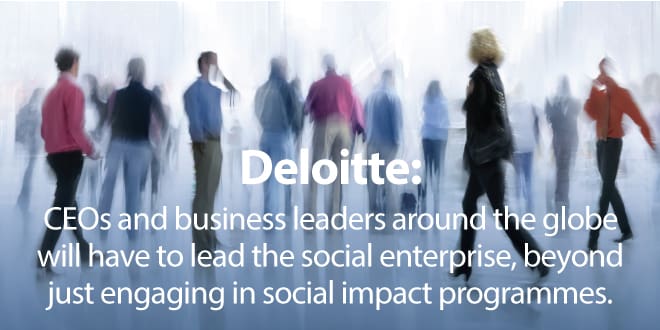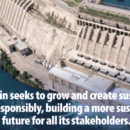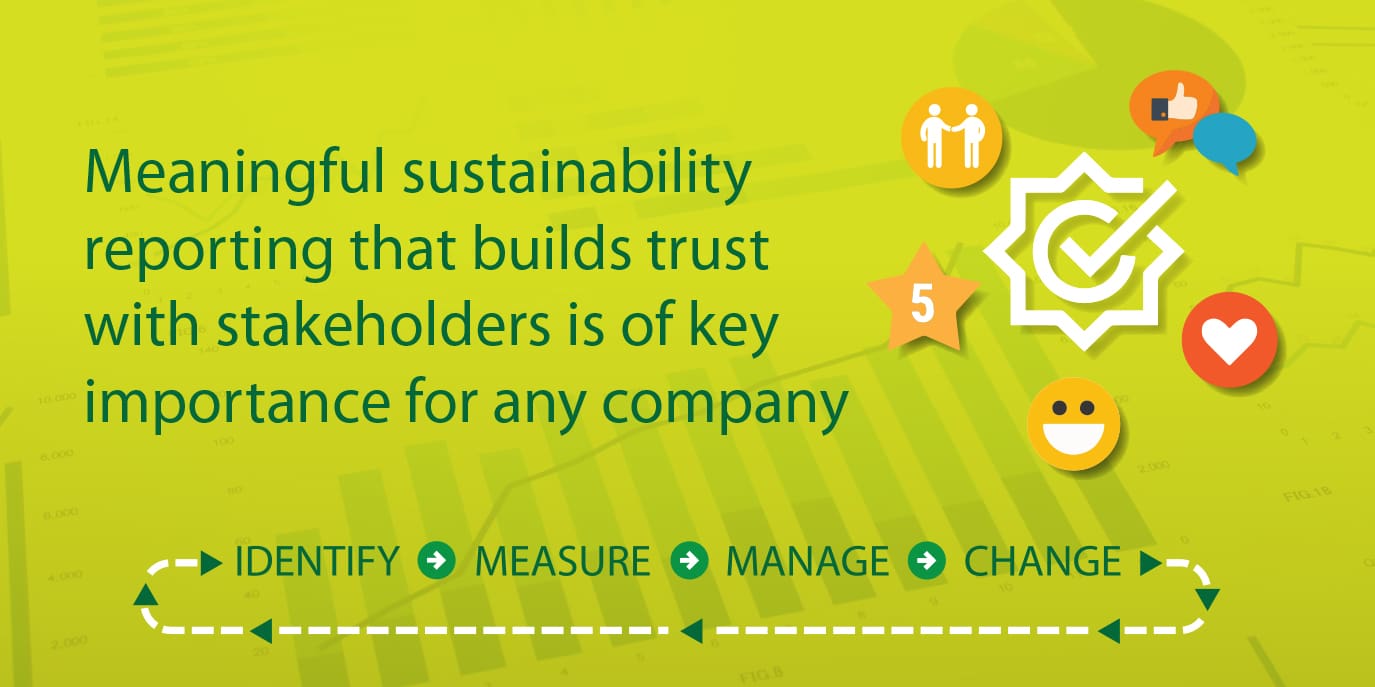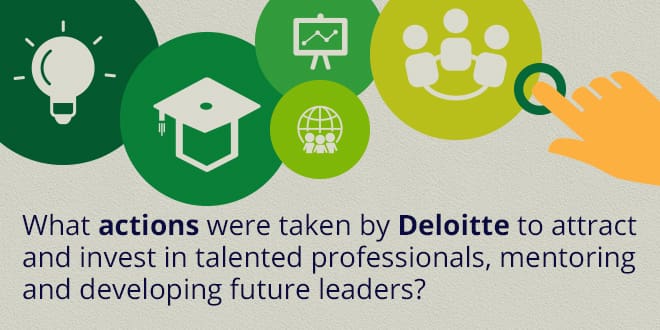Deloitte: Organisations should reinvent themselves around a human focus

According to Deloitte’s 219 Global Human Capital Trends survey, involving almost 1, respondents in 119 countries, an intensifying combination of economic, social, and political issues is, today, forcing organisations to reinvent themselves, with a human focus.
As the trends and challenges leading to the rise of the social enterprise became, in 219, even more prominent, CEOs and business leaders around the globe will have to lead the social enterprise Tweet This!, beyond just practicing corporate social responsibility or engaging in social impact programmes.
The social enterprise: creating value for stakeholders, not just shareholders
A social enterprise is an organisation that focuses not only on revenue growth and profit-making, but also on the need to respect and support its environment and stakeholders, listening to the trends that shape today’s world. It is an organisation that accepts its responsibility to be a good citizen, serves as a role model for its peers, and promotes multilevel collaboration. Accordingly, leading a social enterprise means recognising that businesses must not just generate a profit and deliver a return to shareholders, but also improve the lives of workers, customers, and the communities in which they operate.
Why reinvent?
The Fourth Industrial Revolution is bringing disruption to the political, economic, and social fabric, impacting work, workers, and employers. Income inequality, wages, and the role of businesses in society, are under widespread debate globally. Deloitte’s 219 Global Human Capital Trends survey highlights key workplace trends and issues, including the following:
- In 218, the United States experienced 2 major work stoppages involving 485, workers (the most since 27), while income inequality is growing in many developed economies, including the United States – where the bottom 9 percent of earners have only seen a 5% wage increase over the past 18 years.
- Eighty-five percent of employees globally are not engaged or are actively disengaged from their jobs. They are working more hours, and problems of financial and mental stress seem to prevail. In the United States, over 4 percent of the workforce now works on a contingent basis.
Social enterprises perform better financially
Deloitte’s 219 Global Human Capital Trends survey revealed trends and facts that confirm the rising significance of the social enterprise:
- When CEOs rated their most important measure of success in 219, the number-one issue they mentioned was “impact on society, including income inequality, diversity, and the environment,” showing the urgency of this issue.
- According to 56% of the survey’s respondents, the social enterprise will become more important to organisations over time.
- Survey respondents confirmed the social enterprise’s positive link to financial performance: 32% of more mature social enterprises (industry leaders) expected greater than 1% growth in 219, compared to 218.
Five human principles for the social enterprise
There are five key principles that frame the “human focus” for the social enterprise, against which any action or business decision affecting people can be measured:
- Purpose and meaning: Giving organisations and individuals a sense of purpose at work, moving beyond profit and focusing on doing good things for individuals, customers and society.
- Ethics and fairness: Using data, technology, and systems ethically and fairly.
- Growth and passion: Designing jobs, work, and organisational missions to cultivate passion and a sense of personal growth.
- Collaboration and personal relationships: Building and developing teams, focusing on personal relationships.
- Transparency and openness: Sharing information openly, discussing challenges and mistakes.
78% of the world’s 25 largest companies report in accordance with the GRI Standards
SustainCase was primarily created to demonstrate, through case studies, the importance of dealing with a company’s most important impacts in a structured way, with use of the GRI Standards. To show how today’s best-run companies are achieving economic, social and environmental success – and how you can too.
Research by well-recognised institutions is clearly proving that responsible companies can look to the future with optimism.
FBRH GRI Standards Certified and IEMA approved Sustainability Course | Venue: London LSE
By registering for the next 2-day FBRH GRI-Standards Certified and IEMA approved Course you will be taking the first step in gaining the many benefits of sustainability reporting.
References:
This article is based on published information by Deloitte. For the sake of readability, we did not use brackets or ellipses. However, we made sure that the extra or missing words did not change the publication’s meaning. If you would like to quote these written sources from the original please revert to the following link:
https://www2.deloitte.com/insights/us/en/focus/human-capital-trends.html








